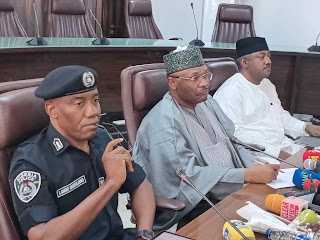The Senate Wednesday called on the federal government to discard any plans to increase electricity tariffs in the country.
The alleged plan, according to the Senate, is ill-timed and must be jettisoned in view of the economic hardship being faced by Nigerians now, which largely arose from fuel subsidy removal.
It, therefore, admonished the federal government that rather than increase electricity tariffs, it should focus on electricity generation and distribution.
The Red Chamber also resolved to investigate the over N2 trillion the Minister of Power, Bayo Adelabu, said was required for electricity tariff to avoid the repeat of fuel subsidy scandal.
It also mandated its committee on power “to investigate the operations of DisCos to ascertain the current status of metering and their extent of compliance with relevant legal and regulatory frameworks in service delivery as well as to direct the NERC to furnish the committee with any relevant documents on metering of electricity consumers, post privatization requirements for the operation of DisCos and evidence of regulatory actions taken to ensure statutory compliance by DisCos.”
Senate’s resolutions were sequel to a motion titled, “Planned Increase in Electricity tariff and arbitrary billing of unmetered customers by distribution companies (DisCos), sponsored by Aminu Iya Abbas (PDP Adamawa Central) and co-sponsored by 10 others.
Presenting the motion, Senator Abbas said: The Senate notes with greatest dismay the plan to increase electricity tariff by the relevant statutory authority in gross disregard of increased economic challenges with attendant widespread poverty and high cost of living;
“The Senate may note that the Hon. Minister of Power was reported saying “the nation must begin to move towards a cost-effective tariff model, as the country is currently indebted to the tune of 1.3 trillion naira to generating companies (GenCos) and 1.3 billion dollars owed gas companies.
According to him, of the over N2 trillion needed for subsidy, only N450 billion was budgeted this year.
“The Senate may further note that the same electricity businesses are collecting money from customers for services not rendered.
“When they have not added anything to the equipment, they inherited from PHCN. Communities buy transformers to replace damaged ones in addition to over burden bills and arbitrary estimates for unmetered customers.
“Recall that this Senate via a motion last year, called on the Federal Government and NERC not to increase tariff on electricity for customers and citizens of this country at that time, which still tallies with realities on ground today.”
In his contribution, Senator Aminu Tambuwal (PDP Sokoto South) while cautioning the federal government asked it to jettison the idea, especially at a time when citizens were still grappling with the economic hardship brought on them by the removal of fuel subsidy.
Also contributing to the motion, Senate Minority Leader Abba Moro (PDP, Benue South) said Nigeria must first be sufficient in generation and distribution of power before considering an increase in tariff.
On his part, Senator Orji Kalu (APC Abia North) noted that even advanced economies subsidised electricity.
He said the focus of government should be on distribution. “Why should people be paying for what they did not use? Our focus should be on transmission and distribution,” he said.
In his remarks, Senate President Godswill Akpabio, who agreed with his colleagues, noted that any increase would further throw Nigerians into untold hardship, especially at a time the people were still battling hunger and high cost of living.
Also at the plenary, the Senate resolved to probe the increase in cement prices and other building materials in the country with a view to finding a solution to the problem, just as it urged the federal government to allow the importation of cement as a stopgap measure.
It consequently mandated the Senator Francis Fadahunsi-led Senate Committee on Industries to conduct an investigation into the activities of cement manufacturing industries operating within Nigeria in order to ascertain whether market manipulation or monopolistic practice were the reasons behind the price, and report back in two weeks.
The red chamber also mandated the committee to ensure cement manufacturing companies adhere strictly to fair market practice and desist from anti-competitive prices.
Senate’s resolutions were sequel to a Point of Order titled, “Need to urgently address the increase in cement prices and other building materials in Nigeria,” rose by Senator Lola Ashiru (APC, Kwara South).
Ashiru, who came under Order 42 on Personal Explanation, said the construction industry was vital for infrastructure development, and economic growth heavily relies on cement and other building materials for its sustenance.
He expressed worry that the recent trend of an almost daily increase in the price of the product has severally hampered progress in various developmental endeavours across the country.
He added that “the sudden and stiff price increase is having a detrimental impact on critical infrastructure, housing and our own constituency projects across the country.”
“Cognisant that affordable cement and other building are indispensable to national development, addressing the issue in time will be advantageous to the construction industry because it will ensure the progress of constituency project and strengthen national security by providing jobs and stability and improve the livelihood of Nigerians generally,” he said.


















